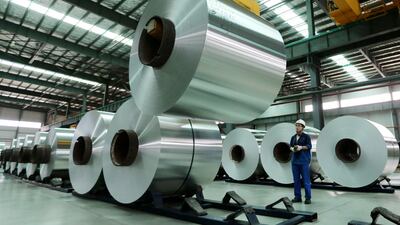Guinea's government has approved a more than US$2.8 billion investment by Chinese company TBEA in a new bauxite mine, an aluminium refinery and an aluminium smelter, the mines ministry said on Friday.
Guinea has about a third of the world's bauxite reserves but output has lagged, largely due to political instability. The West African country also lacks facilities to transform those reserves into higher-grade and more lucrative alumina.
But bauxite production is expected to roughly double this year to about 50 million tonnes and a consortium involving Singapore's Winning Shipping said this month that it plans to start building Guinea's first alumina refinery in 2019.
The TBEA mine should enter production by mid-2019 with an initial capacity of 10 million tonnes of bauxite per year that will rise to 30 million tonnes the following year, Saadou Nimaga, secretary-general of the mines ministry, told Reuters.
An aluminium refinery with an annual capacity of 1 million tonnes is expected to be completed by June 2021 and construction of the smelter should begin around 2025, Nimaga said. He added that TBEA plans to import a 75 megawatt (MW) thermal plant and construct a 300 MW hydroelectric dam to power the installations.
The bauxite industry's significance to Guinea's economy has grown in recent years after development of huge iron ore deposits in its forested interior stalled when global commodities prices crashed in 2014.
The industry's development, however, has been slowed by riots in the northwest over the mining industry's perceived failure to raise living standards. At least two people were killed in a September protest in the town of Boke.

